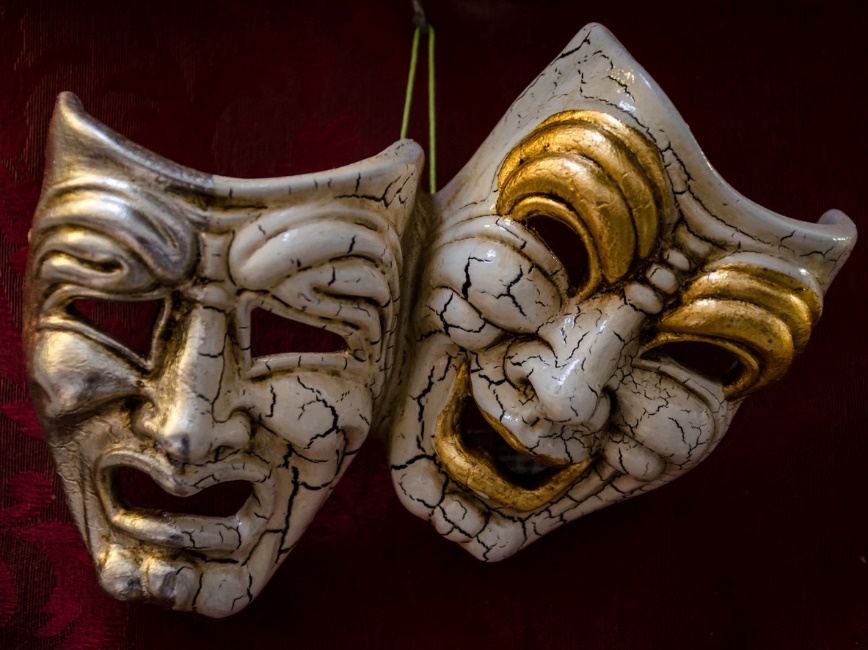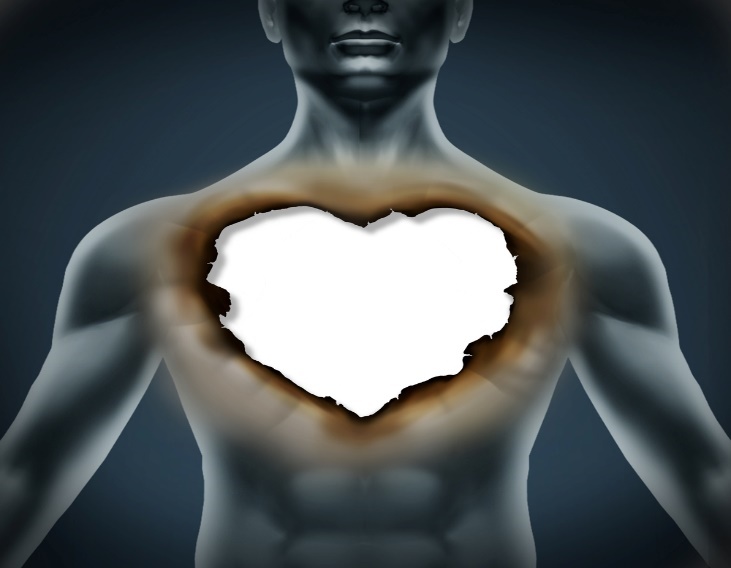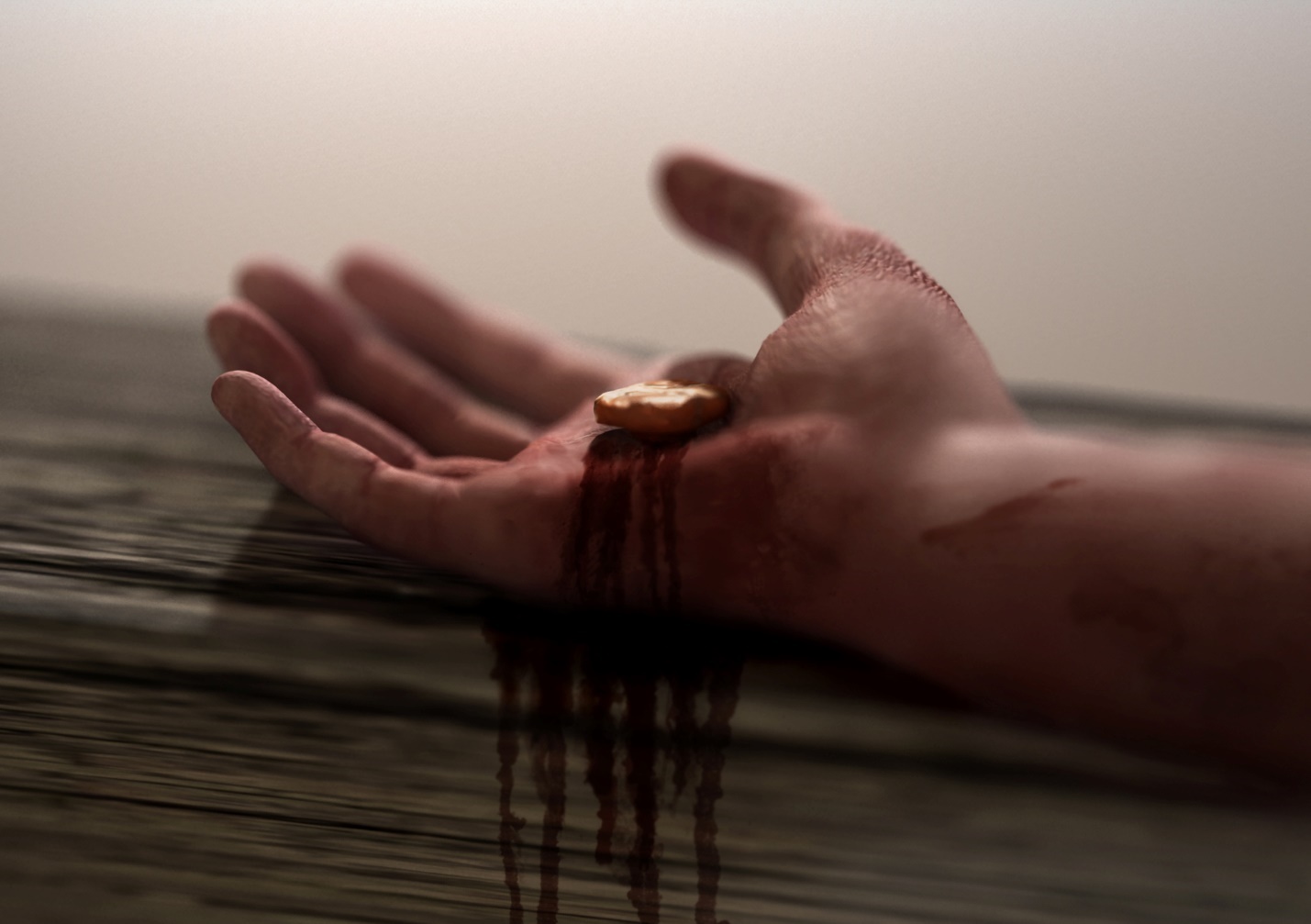BP 15

The essential component of evil is not the absence of a sense of sin or imperfection but the unwillingness to tolerate that sense.
At one and the same time, the evil are aware of their evil and desperately trying to avoid the awareness. Rather than blissfully lacking a sense of morality, like the psychopath, they are continually engaged in sweeping the evidence of their evil under the rug of their own consciousness.
The problem is not a defect of conscience but the effort to deny the conscience its due. We become evil by attempting to hide from ourselves. The wickedness of the evil is not committed directly, but indirectly as part of this cover-up process. Evil originates not in the absence of guilt but in the effort to escape it.
It often happens, then, that the evil may be recognized by its very disguise. The lie can be perceived before the misdeed it is designed to hide—the cover-up before the fact.
We see the smile that hides the hatred, the smooth and oily manner that masks the fury, the velvet glove that covers the fist.
Because they are such experts at disguise, it is seldom possible to pinpoint the maliciousness of the evil. The disguise is usually impenetrable. But what we can catch are glimpses of ‘The uncanny game of hide-and-seek in the obscurity of the soul, in which it, the single human soul, evades itself, avoids itself, hides from itself.
M. Scott Peck, who was mentioned in BP14, speaks to us again in the words above that are taken from his book, People of the Lie. He may not be addressing the whole story relative to evil, but he is speaking of a critical aspect of it.
What the psychiatrist is saying here is that committing sins against others and God is obviously wrong. However, when the wrong-doing is followed by avoiding an awareness of that sin and the subsequent guilt (something I refer to as sin exhaust or the sin hangover), it is then that wrongdoing graduates to the level of practicing the concealing of evil.
Here we encounter self-deception. Lying to oneself. Self-induced blindness.
Instead of turning to God to confess the wrongdoing (exhaling the badness), the person attempts to suppress the awareness of evil within himself by one of two means: denying that what he did was wrong or, more dangerous to humanity, projecting it onto somebody else and hating them because they now bear the sin.
Sin must always find a resting place. A receptacle. Often, a scapegoat.

Instead of humbly receiving the convicting shame of sin that is designed to move the person toward repentance, the individual blames the light that exposes his wrongdoing and accompanying sense of badness. The messenger becomes bad in the eyes of the perpetrator and must be shot.
When sin is ignored and not confessed, the sin exhaust begins to accumulate inside people, and they increasingly feel bad. Eventually, every man and woman feels so full of this badness that they must do something to exhale it.
Refusing to confess their sin and guilt to someone else and so exhale it in a healthy fashion, they are left with no choice but to project it onto the person who awakened their shame with a critical comment or a look. They end up hating the other person instead of hating their own badness.
In this scenario, God, the principal, the child, the parent, the law enforcement officer, the pastor, the counselor, the boss—anyone or anything that exposes the badness of the individual–must be seen as the bad one. So, we shoot the messenger instead of facing our own badness.
Even the dog that cowers before its abusive master will be blamed and beat again since its very shrinking away makes the master look bad and feel shame for his abuse that he will not confess.
In BP13 and BP14, we discussed the Two Things, namely, how to fill the emptiness within us by inhaling the good and how to get rid of our badness through the act of exhaling the bad.
The claim was made last time that Jesus came to deal with both of the Two Things. He fills our emptiness with Himself as we inhale His love and righteousness, and He empties us of our guilt as we exhale our unrighteousness and shame to Him in confession.

Instead of heeding our remorse and asking forgiveness for our sin, Peck tells us that we naturally hide and declare ourselves innocent. We put on masks and lie to ourselves that we have not sinned.
Instead of listening to the voice of our conscience and moving toward God to confess our wrong-doing, we run away from Him. He is the feared One and the hated One because His light will expose what we hide in the dark.
We run away from our consciences and from the God who hard-wired that conscience within us. But the problem then is that wherever we run, there we are. We still have within us the accumulating unconfessed sin and the accompanying sense of burgeoning guilt.
Why do we run and hide? Because we fear judgment. Because we don’t want to give up our sin. Because our wrong-doing feels so large and shameful that not even God could ever forgive it and cleanse us of it.
The person who habitually runs away from her own conscience and God is dangerous. She is dangerous to herself and to others. If she does not exhale her badness by admitting it and confessing it, she will eventually purge it by blaming, shooting the messenger, scapegoating. Here we see the roots of hate and a homicide that occurs without touching the physical body.
Why is Jesus the only person in the universe who can help us with our badness and the symptoms that accrue if our sin is not exhaled? Because Jesus willingly became our scapegoat.
Motivated by obedience to His Father and a deep love for us, Jesus came to earth and was born in our skin. As a shepherd, he pursued His lost sheep and invited them to repent of their sins. In the end, He died for us so that we might live.
In that death, He initiated the Amazing Exchange. He took our sin, badness, shame and unrighteousness onto Himself effectively becoming our scapegoat. But that’s not all. He also gave us His righteousness.

Many people project their badness onto God and then distortedly view Him as judgmental and rejecting.
But God is the opposite of rejecting. He is the God of compassion who came to deliver us from the dark pit of our sin and shame.
John 3:16-18 says, “For God so loved the world, that He gave His only Son, that whoever believes on Him should not perish but have eternal life. For God did not send His son into the world to condemn the world, but in order that the world might be saved through Him. Whoever believes in Him is not condemned, but whoever does not believe is condemned already, because He has not believed in the name of the only Son of God.”
The main point here in BP15 is that because of Jesus, we are not left alone with our badness. We don’t need to hide our sin and run away from God’s Presence. We don’t need to get rid of our badness by denying it or projecting it onto others.
God is not waiting to condemn us. Quite to the contrary, Jesus is pursuing us out of love and a desire to forgive us.
He invites us with open arms to approach Him and experience the Amazing Exchange instead of drowning in the sea of the Tragic Exchange whereby people reject God and pursue fleeting pleasures that feel good for a season but, as sin, leave behind the deadly sin exhaust that must be exhaled.
Jesus is very good for psychology, for the study of the soul. If we run toward Him, the scapegoat who willingly took our sin on Himself, we will be delivered from our rebellion and from practicing the evil of self-deception.
Healthy people own their badness and approach God to confess their wrong actions, thoughts and attitudes. Unhealthy (evil) people run from their badness because they are incapable of looking inside and owning it.
Make no mistake. If people do nothing, their badness will kill them.
Just like carbon dioxide that builds up in the cells of the body or carbon monoxide that accrues in a closed garage while the car is running, unconfessed sin mushrooms within us and we are asphyxiated by it. Jesus is our spiritual oxygen. When we inhale Him, we then exhale our badness.
Tragically, many people choose to settle for CO2 and CO. They choose death over life!

In summary, we all come into this world needing to deal with the Two Things–not just one thing as Curly Washburn asserted in BP13.
As humans, we were all created in the image of God, but because of the Fall—the Terrible Rebellion—we are all born into this world with empty souls that are far from our loving Creator.
The first thing, then, is to receive God’s invitation to dwell within us thereby filling the awful emptiness that gnaws at us every day.
The second thing is to exhale this toxic badness that accumulates in the soul. Thank God that He sent His Son to forgive us by exhaling our badness onto Him not through the evil act of projection but through the godly practice of laying our sins on our scapegoat, Jesus.
We don’t have to tolerate sin and imperfection as M. Scott Peck mentions or get rid of it by blaming somebody else. We don’t have to choose to be People of the Lie.
Through His death for us, Jesus invites us to come to Him and become people of the Light. Then there will be no more guilt, shame, badness, projection and hatred. No more shooting the messenger.
The price has already been paid. The hand that saves you from your sin and badness is the one that bore the nails of your sin. In Him, you now stand holy and righteous. There’s no more condemnation and shame for you.
So, approach Jesus for life.

We implore you on behalf of Christ, be reconciled to God. For our sake, He made Him [Jesus] to be sin who knew no sin, so that in Him we might become the righteousness of God ~ 2 Corinthians 5:17, 20, 21
